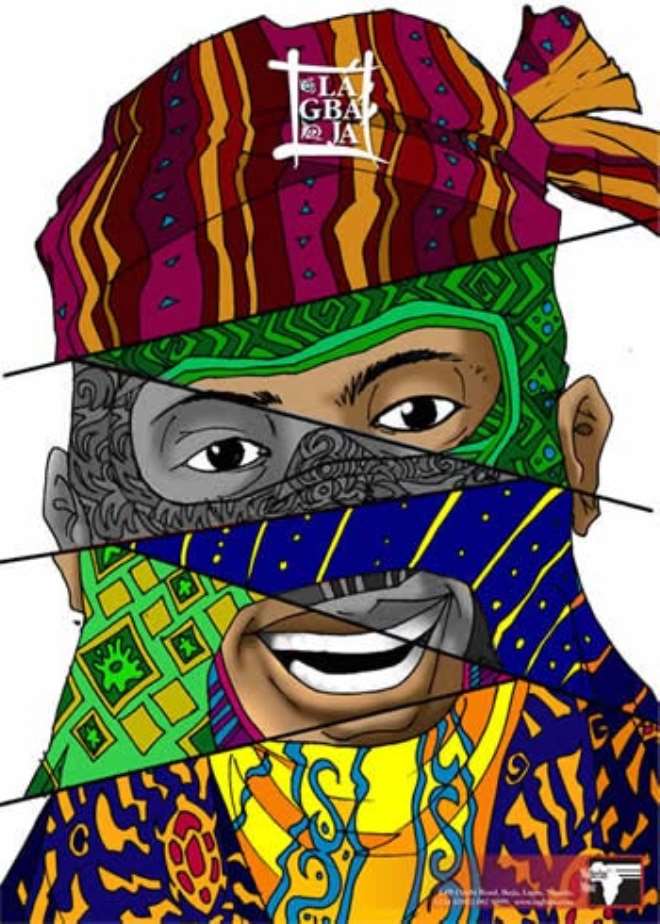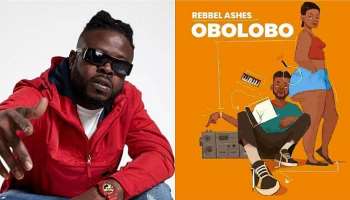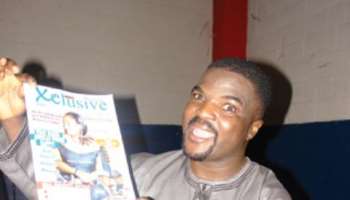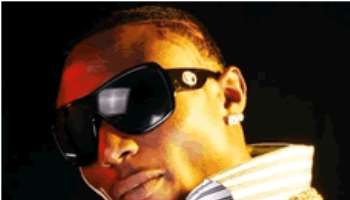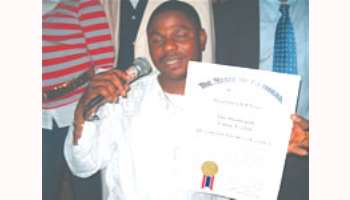I Would Have Been A Teacher -Lagbaja
Lagbaja, the masked highlife singer, has carved a niche for himself on the Nigerian music scene and even beyond, such that he needs no introduction. He speaks with ADUNOLA FASUYI on some issues, his music and many more. Excerpts:
How has it been so far and how exactly would you describe your genre of music?
It has been so far, so good. My genre of music is called Africano. It is a simple way of saying that the most essential ingredient of the music is the African culture in general, and our drums and rhythms in particular, as exemplified by the Yoruba Gangan, Bata, Dundun, Sakara and Ogido drums that are prevalent in our music.
What is the major success you have recorded as a musician?
I think that has been developing and pioneering a musical style, Africano, that showcases and promotes our cultural heritage.
You use Yoruba drums a lot in your music. Why is this so, is it to evoke a deity or something in the Yoruba cultural heritage?
I approach it from the point of view of how I am musically motivated. It is a very rich source of heavy rhythms. It was Yoruba rhythms that gave rise to the music of Fela and afrobeat. Fela was a Yoruba man, Yoruba gave rise to King Sunny Ade. The same Yoruba music gave rise to fuji. It is a source of rhythms. It is a rich cultural base that has been taken in different directions to form different styles by different musicians. All the styles have come from the same direction of Yoruba drums. I don't try and evoke one particular style or groove, those grooves just come from traditional Yoruba grooves. That is how I have been influenced by the Yoruba culture itself.
You sing in Yoruba language, pidgin and English. What exactly determines your choice of language when singing?
Frankly, I think its how the song comes, it just flows from one language to the other without a straight demarcation. If it comes in pidgin, I sing in pidgin, if it comes in Yoruba I sing in Yoruba, if it comes in English, I sing in English
What are the major challenges you have had to contend with in your music career?
Piracy and coping with the difficulties of doing business in Nigeria.
Is piracy affecting your music and the expected profit in business?
Absolutely! It is a multi-headed monster with devastating effects. It is more than just the copying of one's works.
What would you suggest to government on decisively checking piracy?
Several things are feasible but, government should start by reorganising the Nigerian Copyright Council, which is supposed to be the fundamental protector of intellectual properties. Government needs to put honest, visionary leadership at the helm of affairs of the council, if those who presently run it continue to prove ineffective in discharging their duties.
It is evident with what happened in NAFDAC, EFCC and Central Bank what a great difference the right management can make.
Without the right leadership to steer the ship of intellectual property protection, all other measures are akin to using a basket to evacuate ocean waters from the sinking ship. Right leadership first. Other things would fall in place.
How did you come about your stage name 'Lagbaja' and the mask identity?
I wanted an iconic image that would represent the message in my music. The serious side of Lagbaja's music is about positive socio-political change that would impact on the lives of the so-called common man. The Yoruba word, Lagbaja, its connotation as well as the mask fit together perfectly. I chose to use the mask as a symbol that represents the facelessness, the voicelessness, the seemingly lack of identity of the common man.
And I thought since I felt they were faceless, the best thing is use a mask. I wanted a name that would communicate the same message. The Yoruba word Lagbaja means nobody in particular, and depending on the context of its use, it could mean anybody, somebody.
Do you also mask like this at home when with your family? What about when you have a visitor at home?
Oh, no. Not at all.
What if you have to take your family out, say on a shopping or for picnic or when fathers are asked to attend the kids' Open Day in school, would you still mask?
Really, once the mask is off, I am no longer Lagbaja. That is one of the good things about suffering under the mask. Once you leave the stage and take off the mask, you become a free man and thus able to live without the imprisonment of celebrity or superstardom.
So, open day, closed day and any other "day-day" permutations you can think of, the man behind the mask is able to exist joyfully, ordinarily, in the society.
Still talking about your stage identity, has any of your children asked you any embarrassing question before as to why daddy is always masked?
Of course, not.
Has the Lagbaja outfit ever caused you a serious embarrassment before?
No. Rather, it brings immense prestige, respect and dignity.
Do you wear other forms of attire like suits, agbada etc apart from the usual Lagbaja outfit?
No suits at all. For Lagbaja, it is mostly African fabrics and styles. Jeans and khaki might stray in once in a while. Tours in winter require some warmth, so jackets and many layers of clothing make jack a warm guy.
What is your religion? Do you go to places of worship in the Lagbaja attire too?
Without the mask, this guy is no longer Lagbaja. So, ordinarily, I should not be answering for the guy behind the mask. But since one million masks cannot hide one from the Almighty, I would leak a little about him. He is a Christian, Bible believing, and in spite of his many failings and fallings, he strives to emulate Christ.
Tell us about your background?
I spent a substantial part of my growing up years in Ibadan city. I basically grew up listening to music, going to festivals of traditional Yoruba music. As I grew in my consciousness, I started to understand that music is not a thing you see in isolation.
The most important thing is your understanding of people and life itself. But the music itself has been in me through the years, listening to big ensembles of drummers, performing at festivals. That is the core of the whole thing and how the interest developed.
Why exactly did Ego leave your band?
To grow further in her career and achieve her dreams.
How is your relationship with Ego now?
Good as always.
Since she left your band, have you been able to get a perfect replacement for her? Do you miss her in your band?
Though, the simple answer to your question is yes, I prefer not to use the word replacement. Even before she left, she had contributed in mentoring a successor. That was Tamara, who came second in last year's Naija Sings competition and who has since also moved on to pursue her dreams. But wait until you hear the new singers with your own ears. Seems we might be coming to Ibadan very soon as someone is proposing something like what we do at Motherlan?
In 1997, I established Motherlan' in the heart of Ikeja. The design is influenced by the traditional African town or market square, where people gather under the moonlight for ceremonies and artistic events like dance, music, story telling, wrestling among others.
What new stuff should your fans out there expect from the stable of Lagbaja entertainment in the near future?
All sorts, but always great stuff with depth. Full of adventure, creative, seeking and promoting the best of our culture.
If you were not a musician, what other profession would you have delved into?
Possibly teaching or into mass commmunication.
How do you relax generally?
I make out time to relax and my hobbies are reading, practicing my musical instruments, watching movies.
Latest News
-
 "If You're For Me, I Am For You" - Cubana Chief P
"If You're For Me, I Am For You" - Cubana Chief P -
 "3 Days To Go" - Femi Adebayo Urges Fans To Get S
"3 Days To Go" - Femi Adebayo Urges Fans To Get S -
 "Stop Asking Me Questions About Speed Darlington"
"Stop Asking Me Questions About Speed Darlington" -
 "Benue Is The Most Underdeveloped State I've Ever
"Benue Is The Most Underdeveloped State I've Ever -
 Stan Alieke Urges Young Professionals To Take Lin
Stan Alieke Urges Young Professionals To Take Lin -
 Chizzy Alichi Teases Fans With Baby Reveal, Promot
Chizzy Alichi Teases Fans With Baby Reveal, Promot -
 "I'm Not Wearing Makeup From July 4th Till Decemb
"I'm Not Wearing Makeup From July 4th Till Decemb -
 "Stop The Challenge Of Mocking Kids With Down Syn
"Stop The Challenge Of Mocking Kids With Down Syn -
 Regina Daniels Celebrates Sons As They Mark Birthd
Regina Daniels Celebrates Sons As They Mark Birthd -
 Speed Darlington Threatens To Sue NAPTIP For Defam
Speed Darlington Threatens To Sue NAPTIP For Defam


